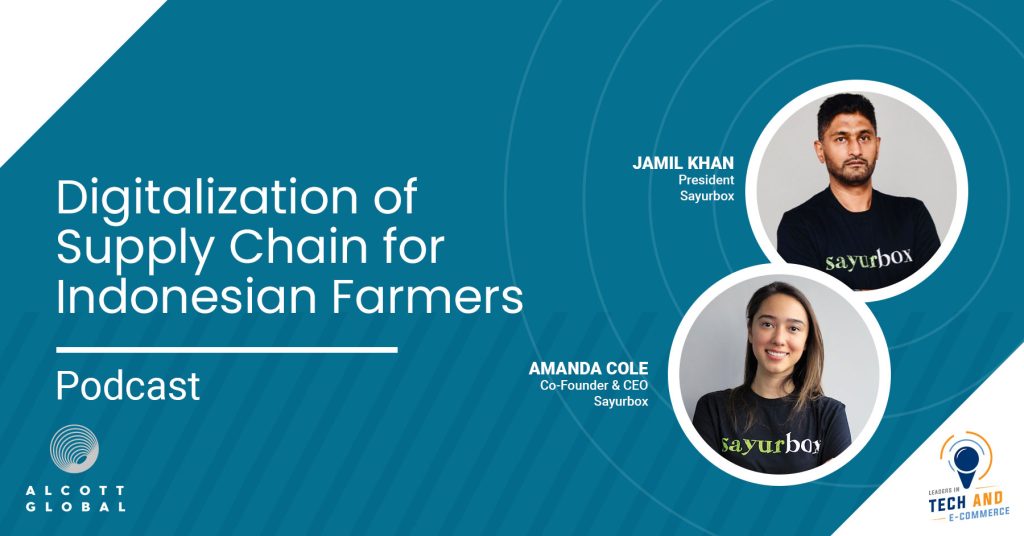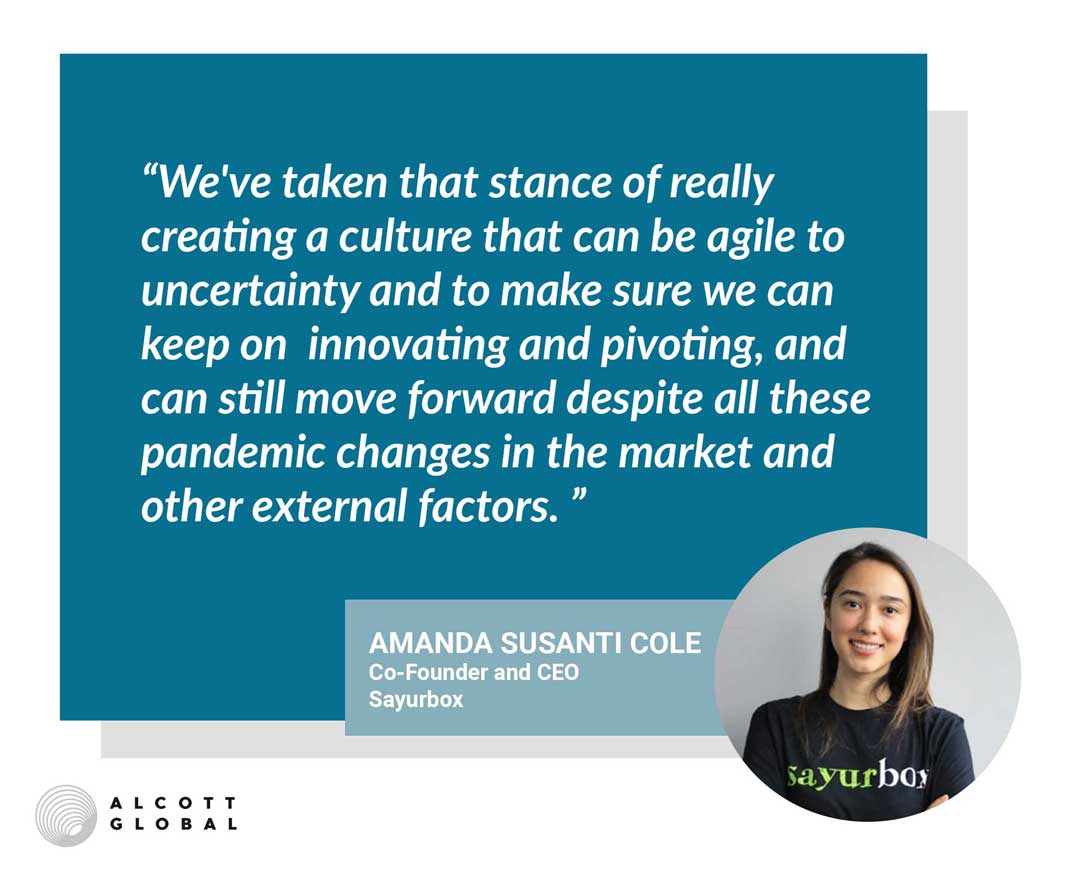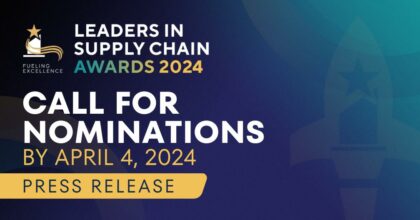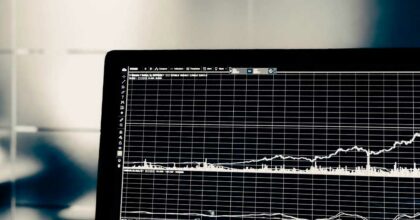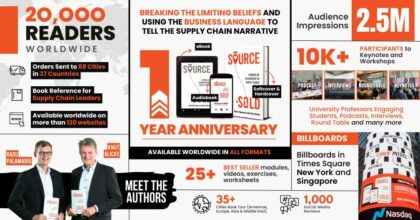About Jamil Khan:
Jamil Khan is the President of Sayurbox. Jamil is an International Logistics Leader, bringing almost 30 years of Operational & Supply Chain experience, having lived in 6 and worked in 11 countries across Europe & Asia. He is an experienced senior leader, with a great career as EVP of Logistics at Lazada, and VP of Operations of Redmart, Jamil has also worked in Tesco, METRO Group and Dairy Farm International, in a variety of roles and locations.
He is the driver of a culture that is Customer centric and focussed on quality. Jamil believes in finding talent, building capability through coaching and training to create extraordinary teams at all levels. Jamil has built operational capacity and resilience and has scaled massively in a cost effective way.
About Amanda Cole:
Amanda Susanti Cole is the Co-Founder and CEO of Sayurbox.
Amanda has spent most of her career in agriculture and distribution. Graduating from Manchester university, she headed the supply chain and operations of her family’s distribution company before finding her passion in agriculture. She started and built a farm as well as closely working with farmers to supply high end restaurant. Seeing the inefficiencies in the fresh produce supply chain, she co-founded Sayurbox as a means to distribute fresh produce directly from farmers to end consumers.
Listen to the full discussion here:
- Listen on Stitcher
Connect with the Host:
Rushit Shah: LinkedIn | E-mail
Connect with the Guest:
Jamil Khan: LinkedIn
Amanda Cole: LinkedIn
Some of the highlights from the podcast:
- Sayurbox origin story
- How Sayurbox is building relationships with the farmers
- Upsides and challenges that Sayurbox faced in times of disruption
- Sayurbox future plans in the next 5 to 10 years
- Managing sustainability and some initiatives
- Culture and skills needed within the organization
Show notes:
- [0:52] How did Sayurbox originate?
- [1:10] Sayurbox was founded with that social mission of being able to provide market access to local farmers through the digitalization of Indonesia’s supply chain.
- [4:33] How are you actually building that relationship with the farmers and what are the major problems you’re getting while working with them and how are you solving each problem?
- [5:44] Jamil, are there any quick success stories you have seen and understand as well that you have been traveling around seeing farms in retail stores?
- [8:49] What are some of the upsides which sidewalks have basically caught because of this pandemic apart from people going and buying on E-Commerce?
- [10:26] Our upside was we managed to scale our business during that period, because we recognized the need there and we had a local partner we could work with. It was a tough period but we learned a lot from it.
- [12:00] Was there a challenge where you were sightseeing, making far less money than before, just to be more agile?
- [13:27] You did a very big series funding, I think $120 million. I would love to know how it’s going to help the company accelerate? And also what is the vision? Where do you see this going to be in the next three to five years?
- [14:44] Do you see yourself as more of an almost like a marketplace or you continue selling your own products or your own farmers selling?
- [17:09] Do you see a chance in the near future where it goes out of Indonesia, because the demand for agriculture coming out of Indonesia, to the rest of Southeast Asia is quite high as well?
- [18:25] Do you see now when things are getting more normal, a certain segment or kind of ecommerce economy going down now, and people are going more outside rather than still buying through websites?
- [20:26] We believe that e-commerce alone is not the answer. The key thing for us is making sure that you’re going back to customers, the way we see our vision statement. We also talk about trust, making sure that we earn the trust of customers, suppliers, sellers who work with us, because that makes things work.
- [25:14] So let’s talk about sustainability, as well as wastage because you have low shelf products. How are you measuring it and kind of responding to it? What other protocols do you have in place to make sure both of these are answered?
- [26:11] We have a lot of other initiatives as well other than waste. In terms of packaging material, we want to make sure that we reuse the packaging material. Customers can actually choose not to have any plastic packaging for their products, which we strongly encourage. We’re also calculating the carbon footprint and then offset it by doing other initiatives.
- [28:33] On the tech side, how much of this tech is really being used by farmers? Do they actually have a phone and app which tells them that this is how much of the products are being sold? Is there something which is given to them on hand, or is all the tech just on the lateral side of the business where it’s more about supply chain and meeting the demands?
- [29:17] We do have a farmers management system. So this is for our team to help the farmers and also do monitoring processes. Most of our tech is actually built in house so we do have the end to end control of the supply chain to be able to provide that certainty and service levels for customers.
- [31:30] What is the culture you’re trying to create within the organization?
- [32:04] It’s about coming in and having the desire to make a change, and believe in this passionate concern, or the customer obsession, and that’s one of our values. Making sure that you’re coming every day, and you believe in this value that we have, and you live it, you breathe it and actually you step out of your confidence everyday to do something different.
- [33:48] What kind of skills are needed to be successful in Sayubox?
- [35:05] We look for people who actually have the ability to sort of think on their feet and be nimble about how to do things.
- [35:59] What do you think are going to be the future supply chain skills? What do you think Sayurbox is going to hire five or 10 years from now? What skills are going to be the highest in demand?
- [36:46] I think the one area where I think we’ll need to be much better, and we need people who can actually do that is people who can actually connect data with actual physical operations.
Quotes from the Episode:
About the Host:
The host, Rushit Shah is the Managing Director of APAC and North America at Alcott Global. Rushit comes with 20 years of Executive Search and Selection with 8 years of Supply Chain Consulting service within APAC. He worked for more than 40 countries with diversified industries and functionality.
Alcott Global connects and upgrades the supply chain ecosystem by finding the right talent through executive search, developing talent through learning solutions, and meeting supply chain technology needs through a comprehensive crunch base marketplace.
The supply chain executive search has been our focus since the very beginning, offering recruitment services for top-tier supply chain roles at every level of the end-to-end supply chain: plan, source / procure, make, and deliver. Our consultants have years of experience in placing top talent, in North America, LATAM, Europe, the Middle East & Africa, and APAC, and besides speed, one of our biggest strengths is our network within the supply chain industry, and we capitalize on it to find the best solutions.
Through the years, we have grown as an organization and our offerings with it. One of our initiatives, the learning solutions- training and supply chain academy, is focused on transforming leadership- self-leadership, executive presence, influence capital, and business acumen. Through Supplify, we aim to match corporations with the top technology companies to solve their supply chain and logistics challenges with a focus on innovation and digital transformation.
We are in constant touch with the leaders in supply chain, inviting them to inspire the supply chain professionals in thought-provoking podcast episodes and events, and showcasing what is possible at the yearly Leaders in Supply Chain Awards.
Related Episodes:
How Thras.io Became the Biggest E-commerce Aggregators

